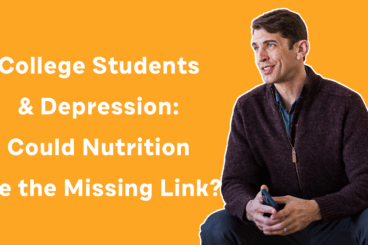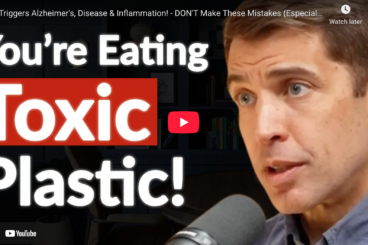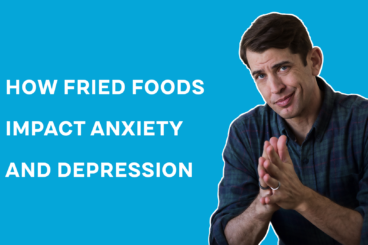Table of Contents
Let’s talk about some of my favorite terms when it comes to mental health and psychiatry. These are ideas and terms I use almost every day in my clinical work as a psychiatrist. I also use them personally as I’m trying to understand my own mind and I find them very helpful. So I wanted to list out nine of my favorites.
Biopsychosocial Model
Number one is the biopsychosocial model. This is the model of modern psychiatry by which we understand there are many different factors at play when we’re struggling with our mental health. There’s the biological which is the idea that our genes and our biology impact how we feel. We all know on some fundamental level this is true. If you want to test this out, skip lunch and dinner today and see how you start to feel, probably a little hungry, irritable and grumpy. That’s a biological response that you’re having in terms of your mood. If you want to feel a little anxious, you can put yourself in a number of settings that would probably do this. So that is more of a psychological response. The idea is that thoughts, your surroundings and your response to them is the origin of some symptoms. Then there’s social. Our social factors significantly impact how we’re feeling. We all know that based on, for example, conflicts within a relationship triggering a lot of different feelings. So the psychosocial model is a very nice model of looking at our mental health because it gives us a lot of different angles to understand how we’re feeling and acknowledges that a complex human emotion has a lot of different inputs. It’s not usually just one thing.
Psychodynamic
The next term is psychodynamic. This is a very important term to me as a psychodynamic psychiatrist. This means I’m a psychiatrist who practices through a lens of psychodynamics, which is a belief that the unconscious is alive and exists, and that symptoms are often generated because of conflicts within our psyche. These are conflicts within that classic Freudian triad: our id, super ego and our ego. Psychodynamics gives us this notion that there’s something dynamic, at play and moving, and that the generation of those conflicts and understanding of those conflicts is part of how symptoms get generated, but also how we get better.
The Unconscious
Number three is the unconscious. This is a fundamental principle in psychodynamic psychiatry. This is the idea that we have awareness of some of the things going on in our lives, but some of our reactions, feelings and ideas are unconscious and we’re not consciously aware of or not aware of them at all. A good example of that in clinical practice is an anniversary reaction. Let’s say someone loses a significant family member and then about a year later, often you’ll see there’s a kind of sudden and sad feeling that can be very disorienting in the unconscious mind. There’s an awareness and a picking up on of all of the cues going on. The change in season is just a reminder that it’s the time of year when this loved one passed, but there’s not any conscious awareness. The patient will come in and say, I don’t know why I’m feeling badly and if you let them settle down and associate, often you’ll begin to hear about the loved one that they lost. So that’s an example of the unconscious things that we’re not aware of that are influencing our mood. It’s one of the benefits of psychodynamic treatment and being in treatment is this notion of increasing awareness.
Superego, Id, Ego
The next three go together. The first is the superego and if you’ve wondered where guilt comes from in the Freudian model of the mind, and the model of the mind that dominates modern psychology today, it is the superego. This is our internalized set of parental values and societal values that allow us to really determine what’s right and what’s wrong. Superego is where guilt and shame and this notion of doing the right thing come from. So if you were raised in a household with a lot of strict rules or a very strict regimen, let’s say, of religious beliefs, that’s going to influence your superego and how you think about what is good, what should be done, what you should feel guilty or shameful about.
The superego is often paired with or in opposition to this next term, the id. The id is the notion of our hedonistic drives. Usually this is defined as sexual and aggressive drives. This is our desire, as some psychoanalysts will say, to mate and to kill. I would encourage us to think about more of the modern psychoanalysts who’ve also talked about this other drive, which is our drive to connect and to relate. I think that’s really important and it’s always resonated with me as a clinician. Yes, people are interested in sex. Yes, people struggle with aggression, but also we have this desire to belong and to connect. That’s a fundamental drive.
The next concept is ego. It’s important to say this today, not as a bad word. So often in the psychedelic movement, there’s a fetishization of ego death, of getting rid of the ego, getting rid of the self. We can talk about that in another video but a lot of us in practice have spent time with patients working on ego strength. Actually ego strengthening is one of the goals of psychotherapy. Your ego helps you navigate between all these impulses and drives that we have and the guilt and the shame that we can feel and to sort of thread the needle.
So ego functions like increasing our frustration tolerance and patience, getting into a state of mind where we can use some of our thoughts and history to make decisions, to react, utilize and strengthen the best of what we have in our prefrontal cortexes and those parts of our brain that think, reason and work towards being stable and consistent in our identity. So those are three concepts that go together a lot and I find they get thrown around. Getting rid of your ego is a common idea. You hear that ego gets confused with selfishness in the self as opposed to ego function, which is something you should be very interested in because ego functioning is what allows us to have prowess and competence in this world.
Transference
The next concept is the idea of transference. Transference is why therapists don’t say a lot about ourselves. It begins with this classic idea of the blank screen that in some ways doesn’t work. If people aren’t responsive or empathic and they’re sitting with us, we sometimes have a bit of a negative reaction. If you’re telling me a very sad story and I don’t have any reaction, that would feel abnormal. Transference is the idea that your relational patterns and some of your unconscious mind gets projected onto the relationship with the therapist. So transferences are the thoughts, feelings, and ideas that you have about your therapist. I’ll have patients say, “I don’t want to share this, I’m sure you’re going to have some really strong opinions about this” or if you have an idea that your therapist really likes you and you’re their favorite patient by far. These are all fantasies and ideas around the transference, around the relationship with the therapist.
Paired with this is countertransference. Those are the thoughts, feelings, and ideas that we therapists have about our patients, and it’s a really important piece of data. If you come in and I instantly think you’re just wonderful or have an opposite reaction and I’m really concerned, all that is great data to help understand what’s going on with you in your situation.
Resistance
The next concept to think about is resistance. Resistance is what therapists refer to as what prevents people from being open and sharing. It prevents us from being vulnerable. Resistance is why we’re often late to treatment or why we put off that evaluation or why we miss a session and had no idea it wasn’t at all in our mind. How does something so important slip our minds?
Well, that’s resistance, and it’s the idea that in some ways the mind wants to stay where it is and wants to prevent some of the pain of being vulnerable, being exposed, talking about some of the challenges and difficulties that were happening.
Defenses
The last idea that I wish everybody knew was thinking about defenses. Everybody has them. It doesn’t mean you’re a defensive person, it means we’re all defensive in some ways. People’s defenses exist for really good reasons. When we have challenging parts of ourselves, painful experiences, traumas or feelings of not being understood right? We create psychological defenses around these.
So a good example of a defense is intellectualization. You could argue this video is a little bit of that. We’re going to come up with all these terms and terminologies for how we’re feeling. We’re going to talk a lot about the ideas but we’re not actually going to sit with the feelings. I remember years ago evaluating a very smart scientist and about an hour into the evaluation, I was hearing all the details of the physics of black holes but I hadn’t heard anything about him. That’s a good example of intellectualization. As much as I was intrigued and fascinated by how much he knew, we weren’t there to talk about black holes in that sense. We were there to talk about the black hole in his life, in terms of how he was doing.
Another defense is humor. This is when you joke around a lot. Oftentimes seen as healthy, but still a defense and a defense around sitting with the complexity of real feelings. This defense is joking instead of sitting with something, for example, that’s difficult or painful.
Those are some concepts and ideas that have been prominent in my life as a psychiatrist, as I’ve been thinking about the mind, about mental health and helping people think about how to get better with their mental health. I hope these are ideas that are helpful to you. A lot of them get tossed around and a lot of them have very complex definitions but I wanted to give you a sense of these phrases and words and some of their meaning and how they can be helpful in our pursuit for better mental health and better mental fitness.



